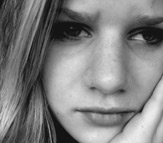 Going through life depressed, is like going through life with a chronic case of the flu—yet 80% of depressed individuals are not receiving treatment, and likely don’t even realize they are depressed.
Going through life depressed, is like going through life with a chronic case of the flu—yet 80% of depressed individuals are not receiving treatment, and likely don’t even realize they are depressed.
Utilize this Depression Self-Evaluation Checklist; it’s the first step to knowing and finding help.
Do you currently suffer, or have you recently suffered from, any of the following:
- Sad or empty mood
- Loss of pleasure in activities you normally enjoy
- Weight loss or weight gain, diminished or increased appetite
- Sleep difficulties, too much or too little sleep
- Feelings of restlessness or being slowed down
- Fatigue or loss of energy
- Feelings of worthlessness or guilt
- Indecisiveness, or diminished ability to think or concentrate
- Recurrent thoughts of death or suicide
If you answered Yes to five or more of the above, you may very likely be suffering from depression.
Depressed individuals commonly report a general lack of energy or motivation, along with significant changes in eating and/or sleeping patterns. Pervasive feelings of sadness and guilt are often experienced, sometimes accompanied by sudden fits of crying or irritability. The libido is often affected by an episode of depression, temporarily diminishing the individual’s desire and even ability to have sex, which may fuel the need for couples counseling. Activities the individual has usually enjoyed, such as hobbies or other special interests, are experienced as somewhat flat and less fulfilling while depressed. Not all of these symptoms are necessarily experienced by a depressed person, nor do they necessarily interfere with that individual’s daily life in a dramatic way. Many individuals, in fact, may experience a somewhat chronic sense of boredom, dullness or low energy, without even realizing they are likely suffering from some form of depression.
There is often a neurochemical (brain chemistry) component to clinical depression. When appropriate, treatment may make use of both psychotherapy and antidepressant medication. Many individuals, however, suffer much less severe depressive symptoms, and antidepressants are not necessarily essential to the treatment process in these cases. In such situations, the patient works with the therapist to examine the causes and effects of his or her symptoms and patterns. Cognitive-Behavioral Therapy (CBT) is often used to help the individual reprogram unwanted habits of thinking, feeling and doing. CBT provides clear, structured action steps to help the client move past old depressive patterns. Psychodynamic therapy is also useful in working through depression, as this process encourages clients to better understand unresolved family issues that may be contributing to negative thoughts and feelings.
Anxiety and panic are closely linked to depression, and may be experienced alongside depressive symptoms.
Now that you have an idea of how you’ve been feeling, it’s important that you seek a formal evaluation for depression by a trained professional. Schedule an initial consultation today.


Leave a Reply
You must be logged in to post a comment.